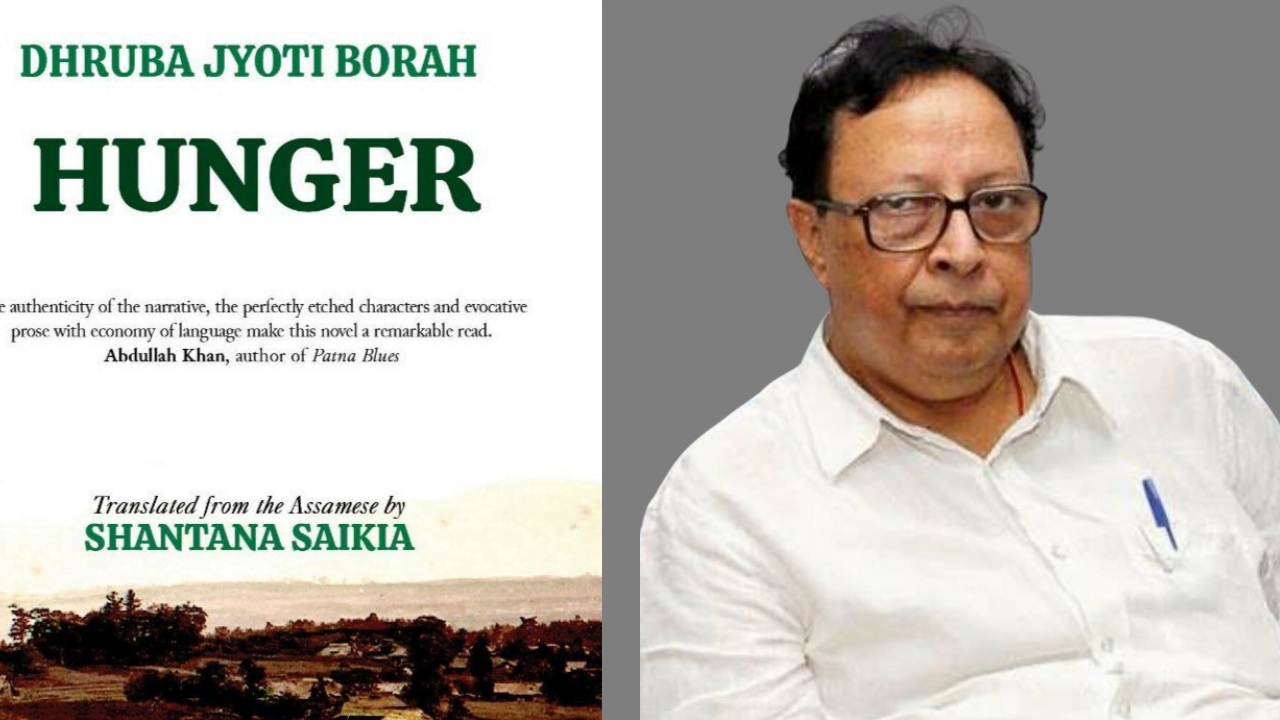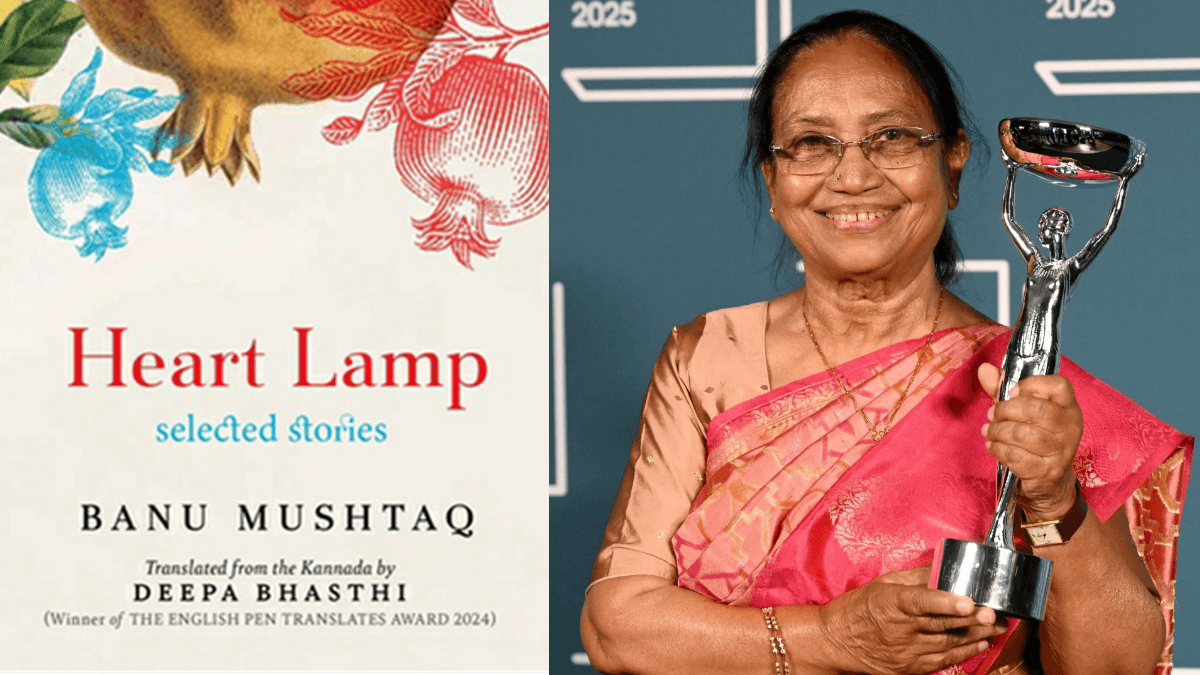Is Hunger a name? If yes, then whose name is this? The name of a person? Class or Society? Or Country?
Author and writer, Dhruba Jyoti Borah tries to find the answer in his novella, Hunger. Set against the backdrop of Char Chaporis (the riverine island), the novel has Farman as the protagonist. Farman belongs to the Miya Muslim community. The lineage of the Miya Muslims goes back to colonial rule in India. Under the guidance of the British rulers, the Muslims of the then East Bengal migrated to Assam. As there was a huge fallow land in Assam and the British needed food for the industrial revolution in England, the British encouraged them to migrate from East Bengal to Assam.
After the independence, these people were/are vilified by various name-callings from Miya to Bangladeshi. The Miya Muslim community is one of the most oppressed Muslim communities in this country. From the National Register of Citizens to the yearly shifting of homes due to flooding in the mighty river Brahmaputra, their suffering is endless.
After the independence, these people were/are vilified by various name-callings from Miya to Bangladeshi. The Miya Muslim community is one of the most oppressed Muslim communities in this country. From the National Register of Citizens to the yearly shifting of homes due to flooding in the mighty river Brahmaputra, their suffering is endless.
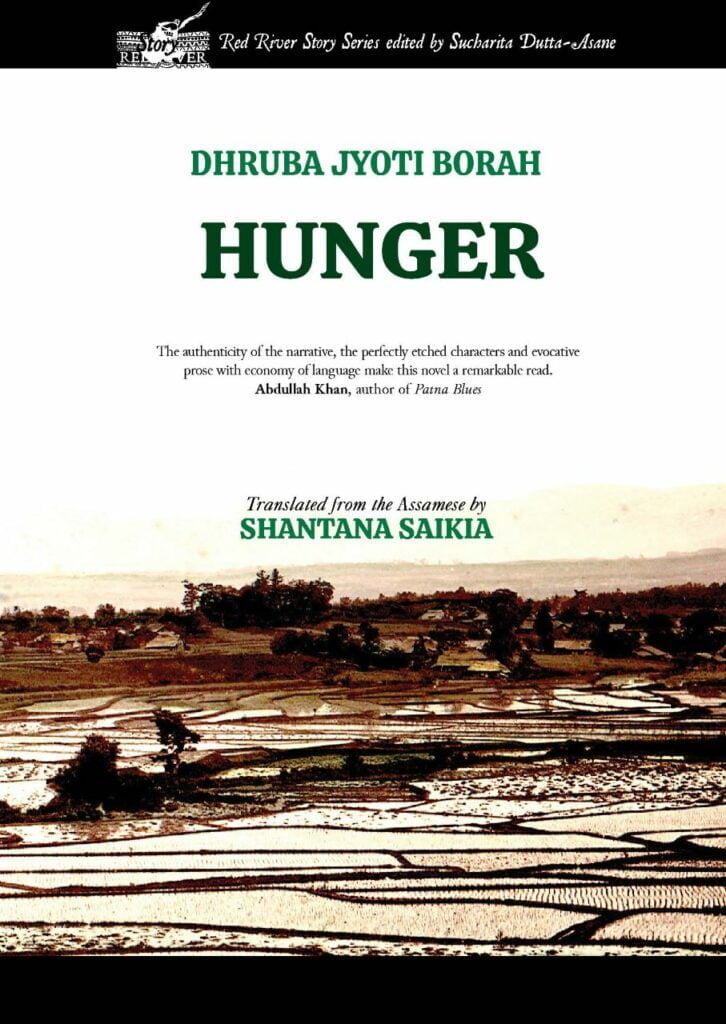
Farman, the protagonist of the novel is not merely a name of a person or rather the name for hunger. The novel revolves around the theme of hunger – the basic, primitive force that shapes the ontological as well as metaphysical presence of an individual. The book pushes the readers to embark on a journey of how hunger kills the innocence of Farman and how he becomes a falengi (cow smuggler) from an innocent boy.
Dhruba Jyoti Borah writes, “First, there would be a burning sensation in his stomach — a desperate cry from his empty belly. Then there would be nothing. This would be followed by a sense of unease, as the indefinable pang relentlessly gnaws at the pit of his stomach and the region just below his chest. Eventually, the pain would subside to a dull ache — curiously numb, apart from a sharp twinge now and then. As the evening falls, the day’s hunger would result in a stupor. It would overpower him mercilessly, mind and body. Yes, Farman knows hunger well.”
Set in a very remote place, in a small district of Barpeta of the northeastern state of Assam, this novel pulls out the painful collages of miseries of the people who are often absent in the literary imagination of the so-called mainstream literature. Farman belongs to Chars, the riverine islands. Like the Chars, his identity is also fluid. For the people living on the Chars, displacement and losing the last straw are yearly affairs.
Like the slushy quicksand of the chars(the bank of the river), Farman gets caught in hunger, the more he tries to get out, the more he gets inside without any escape route. But the desperate human instinct to try to survive on the brink of loss pushes him to be a falengi – a cow smuggler who sometimes even steals cows to smuggle those catches to the nearby country Bangladesh. The novella Hunger keeps the readers glued to its pages with the steady flow of events. The structure of the novel resembles the mighty river Brahmaputra on whose bank the people of Char Chaporis live.
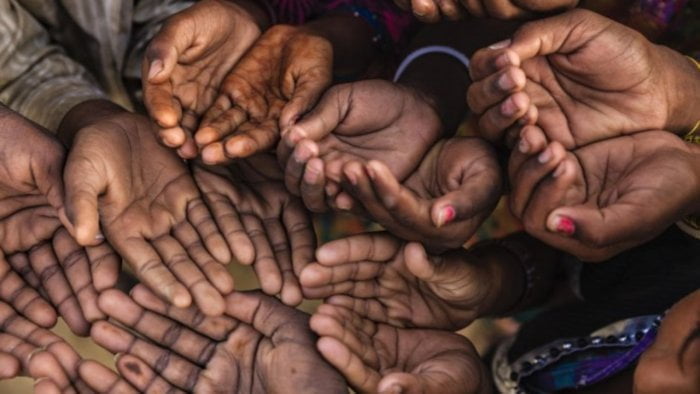
Set in a very remote place, in a small district of Barpeta of the northeastern state of Assam, this novel pulls out the painful collages of miseries of the people who are often absent in the literary imagination of the so-called mainstream literature. Farman belongs to Chars, the riverine islands. Like the Chars, his identity is also fluid. For the people living on the Chars, displacement and losing the last straw are yearly affairs.
“Farman’s family used to live in a low-thatched two-room shack made of bamboo and straw. Every year the floods would destroy the house and they would rebuild it. It was a yearly affair at the char. However, not all lands were inundated. Only the low-lying areas. The higher grounds did not suffer serious damage except when the waters in the Chaulkhowa River rose high,” writes Dhruba Jyoti Borah.
Poverty with a conscience is a difficult combination. His conscience and sense of honesty wrestle with his decision to go with Mansoor, the smuggler. Though he agrees to go with him, the readers feel the presence of his gnawing conscience. Farman had no choice but to choose the path of no return. He became a falengi. Author Dhruba Jyothi Barua numbs every reader when Farman asks Mansoor Falengi, “Haven’t eaten for two days. How can I go?“. Isn’t it a question for every poor person in this country?
Farman becomes a falengi, not out of greed but out of his basic need. As he says, “As the sky became call-powerful law seven cows, two pairs of them were bullocks! Hai Allah! There was no boat this time. They would have to swim across the Brahmaputra with the cattle. Farman desperately held onto the tail of a big bullock. Irshaad and the other falling chased the rest of the herd across the river. Farman had no idea how long it took him to cross the river. Three cows and four bullocks! A catch of no less than five to seven thousand at least! What had he done? How could he commit such a gunyah Hai Allah! As the enormity of his sin struck him, he was almost paralyzed with shock.“
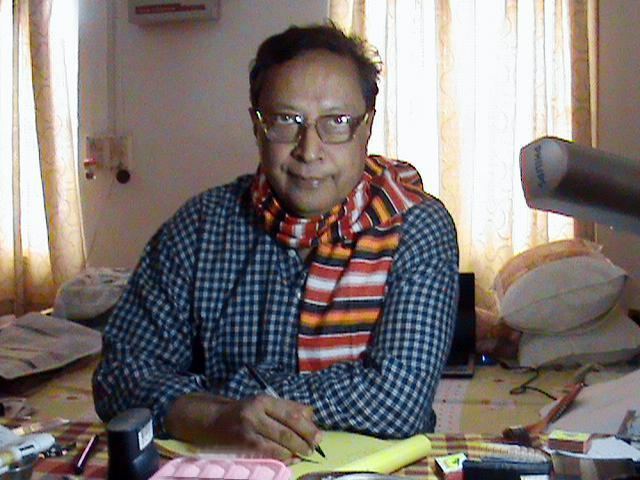
With the money he earns from the smuggling, he repairs his house and begins a new life with Hamida, his wife. “With Hamida, his dark and lonely two-room hut lights up.” The readers too begin to settle and hope for the emancipation of the protagonist, Farman. But like the Greek tragedies, fate plays the spoil. But in this novel, it’s not fate but hunger again plays with the dream of Farman. His savings began to drain and the shadow of hunger began to loom large, and this time it was upon two stomachs. “Moreover, there is also the question of his self-respect. He cannot let Hamida go hungry! The monsoon arrives. The river swells. It is not easy to get a job at this time of the year.”
Farman searches hard and takes every odd job. Crime as the author says is like mire. Eventually, Farman becomes a middleman and lastly becomes a thief. Like the layers of hunger, the cyclic transformation of Farman completes from a falling to a thief. At the end of the novel, a boy asks Farman, “Why do you steal?“, and debilitated Farman’s answer shakes the conscience of the readers, “He glares at the boy and stands up abruptly. Instinctively, the boy falls back a few steps. Farman’s lungi comes off as he rises. Grabbing at the falling lungi, without any warning, he begins to wave it over his head. Like a warning. Like a flag. Stark naked and waving his lungi frantically over his head with both his hands, Farman begins to shout, ‘Hunger. Hunger. Hunger’.“
The novella should be read not only to understand the poverty that was the constant companion of the people of Char Chaporis but to understand the people of the Char Chaporis of the present time. Much water has been flown on the river Brahmaputra since the novel was first written three decades ago in Assamese, and the condition of the people of Char Chaporis has hardly improved. Still, we have people like Farman who get into cow smuggling to face bullets.
The novella should be read not only to understand the poverty that was the constant companion of the people of Char Chaporis but to understand the people of the Char Chaporis of the present time. Much water has been flown on the river Brahmaputra since the novel was first written three decades ago in Assamese, and the condition of the people of Char Chaporis has hardly improved.
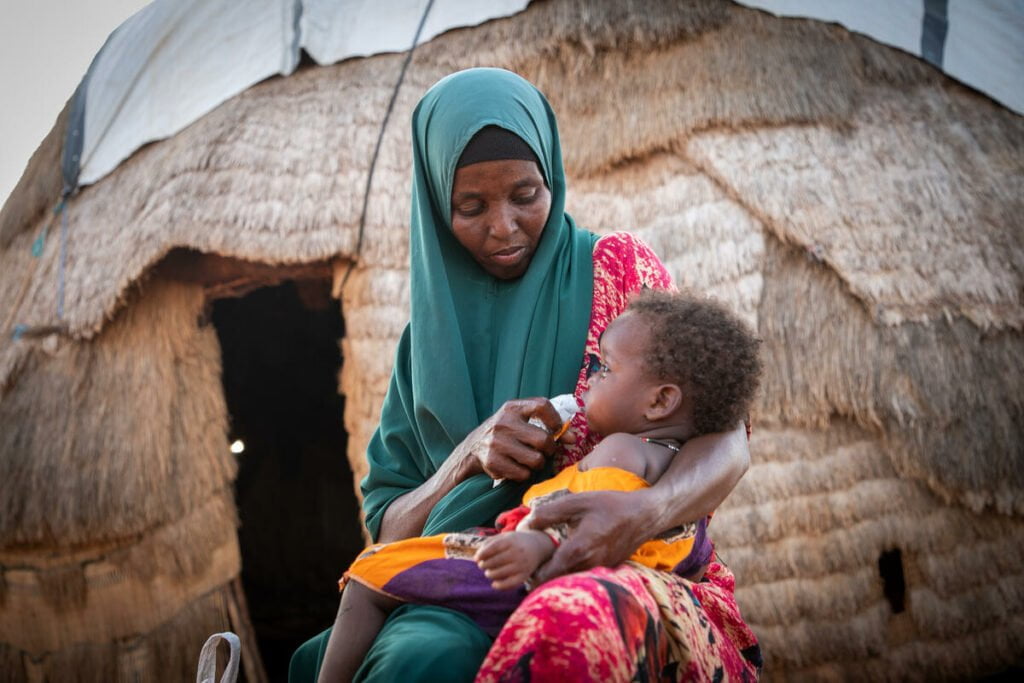
Still, we have people like Farman who get into cow smuggling to face bullets. Cow smuggling is still a reality in Indo-Bangladesh border areas, where the novel has set in. Hunger is a reality that we often invisibilise. Every year young boys die while smuggling cattle and beef.
It’s said a great piece of literature defeats time. Author Dhruba Jyoti Borah’s novel Hunger not only defeats time but becomes a witness of the ever-present hunger that still affects the lives of the Miya people living in Char Chaporis of Assam. Still, hunger is the everyday reality for the people living in the Char Chaporis of Assam. Farman is everyone whose tryst with displacement and hunger never ends.
